Where have all the hypercompetitive, in-it-to-win-it Major League Baseball team owners gone? Straight to the bank.
The baseball gravy train is on a roll. In 2022, the average MLB franchise was worth $2.07 billion — up almost 10 percent from 2018, thanks to some lucrative television contracts.
Because there’s little motivation to boost team payroll, especially in smaller markets, only a select few owners bring it every season. The others pick their spots to upgrade the product, if they invest much at all, and are perfectly happy to pocket TV and luxury tax money while losing a boatload of games.
Remember, home attendance is far less of a factor these days. Empty seats don’t talk nearly as much as they did back in the day.
So, how are all 30 baseball team owners doing?
30. Peter Angelos, Baltimore Orioles
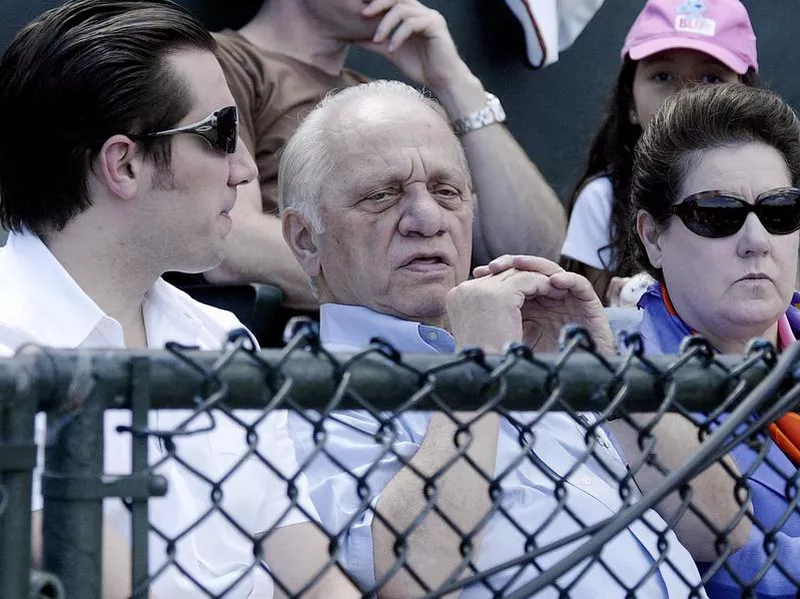
Baltimore Orioles owner Peter Angelos, center, sits in the owners box at Ft.Lauderdale Stadium in Ft. Lauderdale, Fla. with his son, Louis, and wife, Georgia, during a 2007 spring training game against the Boston Red Sox Sunday. James A. Finley / AP Photo
Purchased team: 1993
Purchase price: $173 million
Current team value: $1.6 billion
World Series titles: 0
Get the team’s gear: On Fanatics
Note: Team values are current through the start of the 2023 season, and we may earn money from affiliate partners if you buy through links on our site.
Bottom Line: Bob Nutting, Pittsburgh Pirates
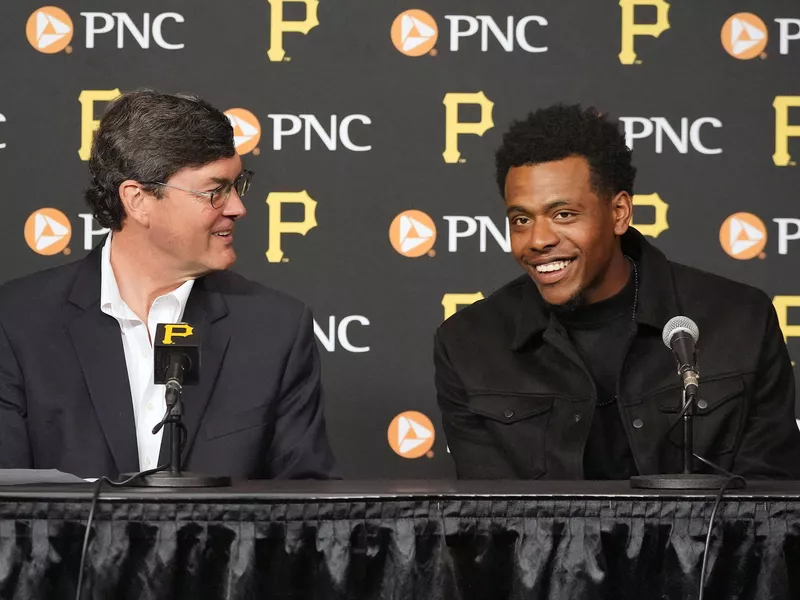
Gene J. Puskar / AP Photo
Bob Nutting is proof positive that it doesn’t take half a brain to make a fortune. Fact is, very few mid-market teams pack this kind of potential. Insanely passionate sports town. Great baseball tradition. Out-of-this-world ballpark.
If the 17th-richest team owner put the 17th highest-paid team on the field, it would be a fairly consistent playoff contender and even bigger money machine. But no, they opened the 2019 season with a puny $76.1 million payroll, 27th overall per Spotrac.
As long as this once-proud franchise is held hostage by the tight-fisted owner, it’s destined to be a chronic underachiever.
RELATED: Worst Owners in Sports History
Bottom Line: Jerry Reinsdorf, Chicago White Sox
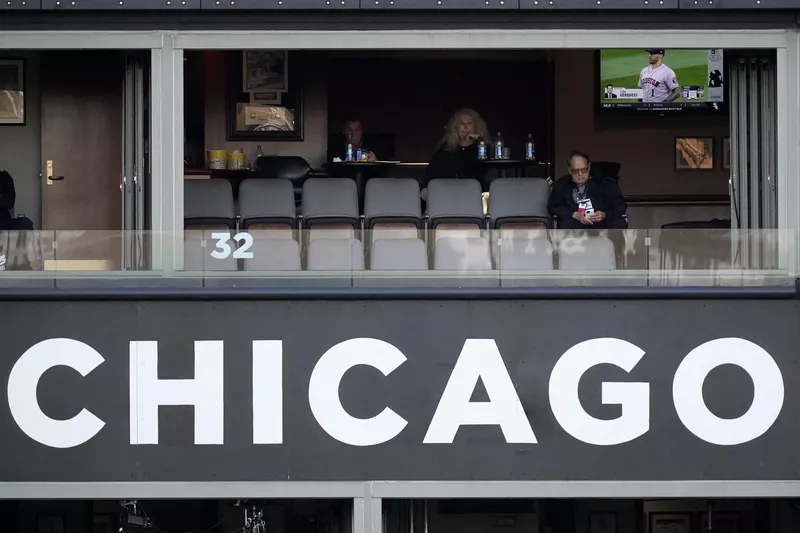
Charles Rex Arbogast / AP Photo
When I become commish, no major market team will be allowed to embark on a full-blown rebuild while it pockets luxury tax money and scrooges the fans. That even goes for the second team in a two-team market such as this one.
Well into his 80s, Jerry Reinsdorf remains loyal only to employees, team investors and the bottom line. The $89.9 million payroll ranks 26th in the bigs. Meanwhile, his team of no-names is mired in its worst extended stretch of the post-expansion era.
The 2005 World Series seems like a long, long time ago.
RELATED: Ranking Every NFL Owner, From Worst to First
Bottom Line: Ken Kendrick, Arizona Diamondbacks
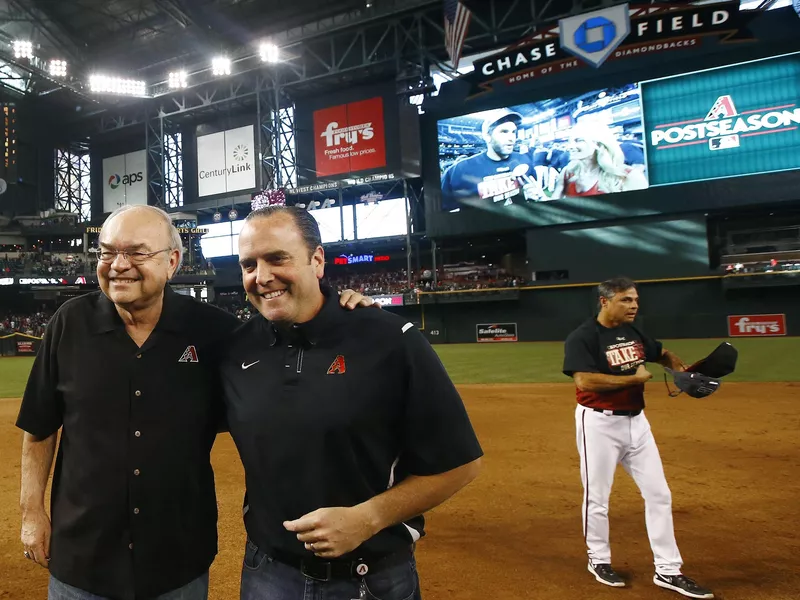
Ross D. Franklin / AP Photo
The Diamondbacks have been mired in the muck of mediocrity for more than a decade now. Some say the problem starts with a drip in the front office, where Ken Kendrick serves as an impetuous hard-ass with a serious case of Dodgers envy. He’s on his sixth manager, rough-edged Kirk Gibson among them. He also hired bully Tony La Russa as general manager despite no previous experience in the position.
All the while, Kendrick picked a silly fight with the rival Dodgers, whose fans he threatened to evict from Chase Field if they didn’t change into Diamondbacks wear. He also warned their players not to celebrate on the field.
Of course, if the front office could build a pennant winner for first time since 2001, opponents would have no reason to pop their corks. The trade of All-Star slugger Paul Goldschmidt was no way to begin the process, and Goldschmidt winning National League MVP honors in 2022 for another team only twisted the knife.
Bottom Line: Charlie B. Johnson, San Francisco Giants
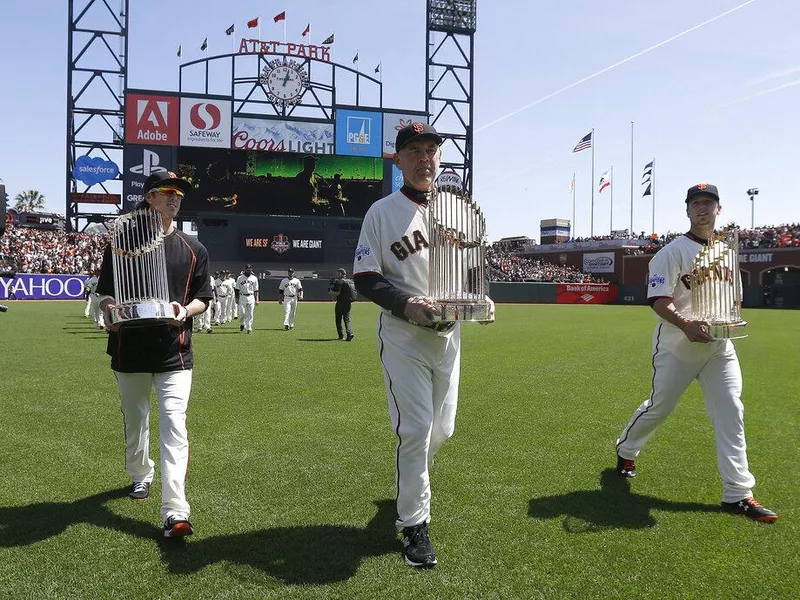
San Francisco Giants, from left, pitcher Tim Lincecum, manager Bruce Bochy and catcher Buster Posey carry the Giants World Series trophies from the 2010, 2012 and 2014 seasons. Jeff Chiu / AP Photo
If the best team owner is the one who stays out of the way and lets his money talk for him, then Charlie B. Johnson fits the description as well as anyone.
After consecutive subpar seasons, largely the result of a neglected farm system, the front office has undergone an overhaul of sorts.
Whether the shift toward metrics pays dividends remains to be seen, but history says one of the deepest pockets in the majors quietly will provide whatever resources are necessary.